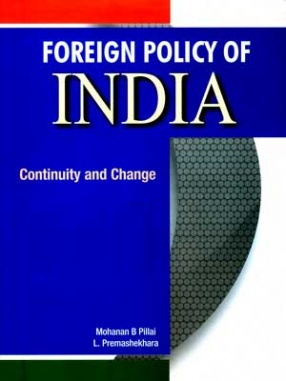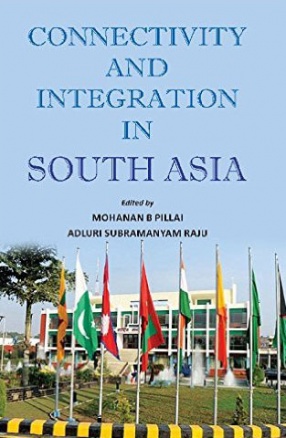Foreign Policy of India: Continuity and Change
Synopsis
Professing and practicing non-alignment has been the hallmark of India's foreign policy since independence in 1947. The initiative for Non-Aligned Movement (NAM)--the biggest independent and informal association of countries on a sui generis basis-came from three nations, viz. India, Yugoslavia and Egypt, represented by the three statesmen Jawaharlal Nehru. Joseph Tito and Gamal Abdel Nasser respectively. From its modest beginnings at the Belgrade Conference in 1961 with a participation of 25 nations, the NAM has expanded to include 119 members at the Sharm El Sheikh (Egypt) Conference in July 2009.
The fall of the Berlin Wall and the collapse of the Soviet Union ushered a new era in Indian economy and polity and consequently in India's foreign policy. India unveiled the look east policy in 1991. East Asia--including Japan, China, South Korea and ASEAN--is today India's largest trading partner, ahead of EU and the US.
India's foreign policy posture in recent years, particularly towards the region of West Asia and North Africa (WANA) has been a subject of intense debate. India's growing relationship with the US and Israel, and its lukewarm stand on Iraqi crisis and Iranian nuclear issue is seen as a fundamental shift in the Indian foreign policy exercise. Critics have accused the succeeding Indian governments during the past two decades of abandoning its independent foreign policy, of deviating from Nehruvian national consensus in Foreign policy matters, and towing the Pro-American line. Others have argued that the radical shift in the orientation of Indian foreign policy in terms of its pro-American tilt bears the mark of realism and pragmatism that is dictated by the demands of globalisation.
The present book contains 28 scholarly papers-contributed by experts in the field--which provide deep insights into the various dimensions of India's foreign policy, focusing on recent developments.
Read more
The fall of the Berlin Wall and the collapse of the Soviet Union ushered a new era in Indian economy and polity and consequently in India's foreign policy. India unveiled the look east policy in 1991. East Asia--including Japan, China, South Korea and ASEAN--is today India's largest trading partner, ahead of EU and the US.
India's foreign policy posture in recent years, particularly towards the region of West Asia and North Africa (WANA) has been a subject of intense debate. India's growing relationship with the US and Israel, and its lukewarm stand on Iraqi crisis and Iranian nuclear issue is seen as a fundamental shift in the Indian foreign policy exercise. Critics have accused the succeeding Indian governments during the past two decades of abandoning its independent foreign policy, of deviating from Nehruvian national consensus in Foreign policy matters, and towing the Pro-American line. Others have argued that the radical shift in the orientation of Indian foreign policy in terms of its pro-American tilt bears the mark of realism and pragmatism that is dictated by the demands of globalisation.
The present book contains 28 scholarly papers-contributed by experts in the field--which provide deep insights into the various dimensions of India's foreign policy, focusing on recent developments.
82.80
74.52
$
92.00 $
Free delivery Wolrdwidе in 10-18 days
Ships in 1-2 days from New Delhi
Membership for 1 Year $35.00
Get it now and save 10%
Get it now and save 10%
BECOME A MEMBER
Books by the same authors









Bibliographic information
L. Premashekhara